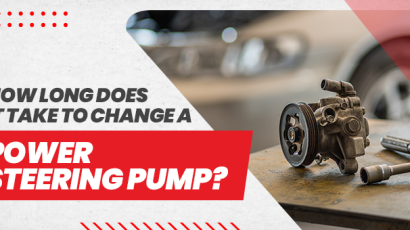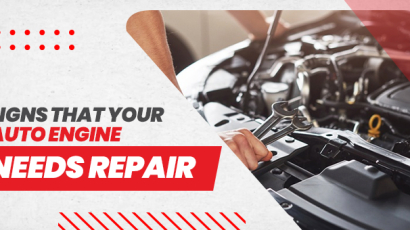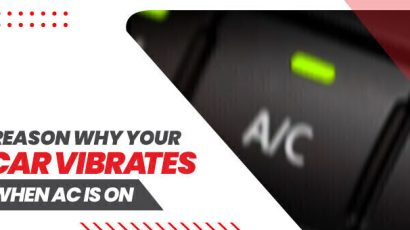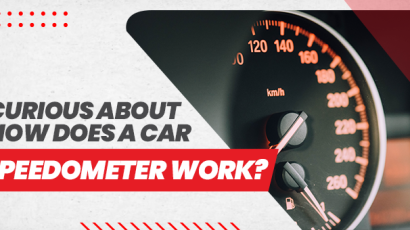
Imagine this: You’re cruising down the road, windows down, enjoying the fresh air. Then, a new sound enters the mix – a high-pitched whining noise when accelerating that intensifies with every press of the gas pedal. It’s a symphony of trouble for your car and ignoring it can lead to a breakdown that will leave you stranded and singing the blues.
But fear not, fellow drivers! This article is your roadmap to understanding why your car is making a whining noise when accelerating and what you can do to fix it.
Why Does My Car Whine When I Accelerate?
Several culprits can cause a whining noise during acceleration. Here are the most common ones:
Transmission Troubles: The transmission is the maestro of your car’s power, transferring engine power to the wheels. When it’s unhappy, it might whine in protest. Possible causes include low transmission fluid, worn-out gears, and a faulty torque converter.
Power Steering Woes: The power steering system helps you turn the wheel effortlessly. If there’s a leak in the power steering system, a loose belt, or a failing pump, it can create a whining sound, especially when the engine is under stress during acceleration.
Engine in Distress: While less common, engine problems like a failing alternator or a worn-out serpentine belt can also generate a whining noise when you accelerate.
Wheel Bearing Blues: Wheel bearings allow your wheels to spin smoothly. If a wheel bearing wears out or gets damaged, it can emit a whining noise that gets louder with speed.
Additionally, consider these factors:
Does the whining change pitch? A constant whine points to a stressed component, while a whine that changes pitch with speed might indicate a wheel-bearing issue.
When does the whining occur? Does it whine only when accelerating, when turning, or constantly? This can help narrow down the culprit.
How Do I Fix a Whining Noise When Accelerating?
The solution depends on the source of the whine. Here’s a breakdown:
Transmission: Don’t delay! Get your car to a mechanic for a professional diagnosis. Depending on the severity, a simple fluid top-up or a more complex repair like replacing worn gears might be necessary.
Power Steering: Verify the level of the power steering fluid. Fill it up with the appropriate kind of fluid if it’s low. A leak or a failing pump might require professional attention.
Engine: Similar to the transmission, a whining engine is best handled by a mechanic. They are able to identify the issue and provide fixes, such as changing an alternator or a broken belt.
Wheel Bearings: Replacing a worn-out wheel bearing is a job for a qualified mechanic. Don’t attempt this yourself unless you have the expertise and proper tools.
The Importance of Early Detection and Repair
Ignoring a whining noise when accelerating is a recipe for disaster. Here’s why early detection and repair are crucial:
Prevents further damage: A small problem can snowball into a major and expensive repair if left unaddressed.
Protects your safety: A failing component like a worn-out transmission or wheel bearing can lead to a breakdown while driving, putting you and others at risk.
Saving Money on Repairs
While repairs can be expensive, there are ways to save money:
DIY (Do It Yourself) – with caution: For simple fixes like topping up fluids, a DIY approach might be possible. However, for complex repairs, consult a mechanic to avoid causing further damage.
Get quotes: Don’t settle for the first estimate you receive. Get quotes from several reputable mechanics before making a decision.
Consider used parts (with caution): Using high-quality secondhand components might be a more affordable choice for some repairs. However, ensure the parts are compatible with your car and in good condition.
Used Cars for Sale: Avoiding the Whine
Looking to buy a used car? Here are some tips to avoid inheriting a whiny problem:
Test drive thoroughly: Pay close attention to any unusual noises, including whining during acceleration.
Get a pre-purchase inspection: A skilled mechanic can find hidden issues, such as possible reasons for whining sounds.
When to Call in the Professionals: Don’t Be a Weekend Warrior Every Time
While some car enthusiasts might relish the challenge of diagnosing and fixing a whining noise themselves, there are times when seeking professional help is the wisest course of action. Here’s when it’s best to leave the wrenching to a qualified mechanic:
Complex Issues: If the cause of the whine isn’t readily apparent, or if it involves complex components like the transmission or differential, a mechanic’s expertise and diagnostic tools are invaluable.
Safety Concerns: A whining noise could indicate a potential safety hazard, such as a failing wheel bearing. Don’t risk your safety by attempting repairs beyond your skillset.
Fluid Leaks: While topping up fluids might seem like a simple DIY task, a leak can signify a more significant problem. An expert in mechanics can locate the leak’s origin and suggest the best course of action.
Limited Knowledge and Tools: Let’s be honest; not everyone is a car guru. If you lack the knowledge or specialized tools required for a specific repair, entrusting it to a professional is the safer and more efficient option.
Warranty Coverage: Making repairs on your own while your automobile is still under warranty might nullify the coverage. Consult your dealership or a certified mechanic to ensure repairs are done correctly and maintain warranty benefits.
Keeping Your Car Whine-Free: Preventive Maintenance Tips
Who doesn’t love a car that purrs like a kitten? Here are some preventative maintenance tips to keep your car happy and whine-free:
Regular oil changes: By keeping your engine lubricated and operating smoothly, fresh engine oil lowers the possibility of whining noises.
Transmission fluid service: Don’t neglect your transmission! Regular fluid changes and filter replacements ensure smooth gear changes and prevent transmission woes that can lead to whining.
Power steering fluid check: Maintaining the proper power steering fluid level is crucial for a quiet and responsive steering system.
Listen to your car: Any new or strange noises your automobile produces should be noted. You may avoid costly breakdowns and save money by identifying issues early on.
Hitting the Road with Confidence
By understanding the causes of a whining noise when accelerating, taking proactive steps towards repair, and implementing preventative maintenance practices, you can ensure your car continues to be a reliable and enjoyable companion on your journeys. Keep in mind that maintaining a pleasant and noise-free automobile just requires a little knowledge and maintenance!
Conclusion:
A whining noise when accelerating is a warning sign that your car shouldn’t be ignored. By understanding the common causes, taking steps to diagnose the problem, and acting swiftly on repairs, you can save yourself from future headaches (and breakdowns!). Recall that early detection is the best chance of avoiding expensive repairs and maintaining your vehicle’s optimal functioning.
Thinking about buying a used car? Don’t let the fear of a whining problem deter you from finding the perfect vehicle. By incorporating a thorough test drive and a pre-purchase inspection into your car buying process, you can significantly reduce the risk of inheriting a whiny nightmare.
Consider a used Toyota Fortuner for sale—its robust build and reliable performance make it a great option. With the right approach, you can identify potential issues early and ensure you drive away with a dependable vehicle. That’s why it is important not to panic the next time you hear a whining noise while accelerating. With the information in this article and a proactive approach, you can identify the culprit, get the necessary repairs, and keep your car cruising smoothly and quietly for











